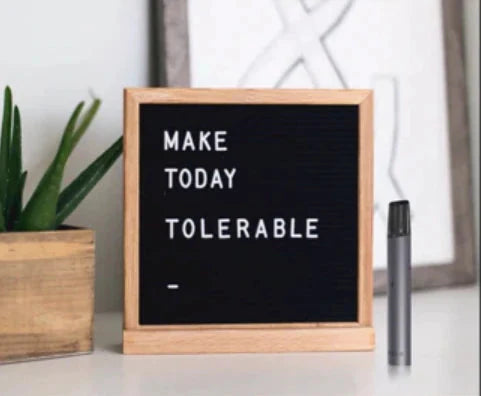7 Tips on How to Be More Productive Working from Home
No doubt about it, there are tons of reasons to love the idea of working from home. Working from home means shorter commute times, more access to childcare and fewer social pressures, just to name a few.
With the lines between home and work getting more blurry with each passing workday, many admit to struggling with staying on task.
However, you’re still perfectly capable of being the same productive worker you always were. With just a few slight changes to the way you operate, you can start polishing off that task list again.
If the only thing getting in the way of a perfect work-from-home situation is low productivity, then read on for some quick tips that will help you turn that around.
1. Dedicated Workspace
Just because you’re working from home doesn’t mean that your work needs to overpower your house completely.
While checking your email from bed sounds nice and cosy, it’s ultimately not the best idea for either your productivity or your mental well-being. The more your home starts to feel like an office, the less you’ll be able to distinguish the difference between lounging and hustling.
After all, who wants to be enjoying a nice dinner or watching an evening show with their laptop just mere yards away?
Carve out a specific area for work and work alone to prevent your home space from completely giving way to notepads and laptops. Having a desk to sit down on that doesn't double as a relaxation area will help you enjoy both activities much better.
While having a separate room with a door to help you shut out the rest of your house activities is ideal, the same interior design strategy can still be applied to a much smaller or tighter space.
As long as there’s adequate room for a proper work surface that isn’t too much in the way of regular household traffic, then you have yourself a fully-fledged home office.
2. Fully Stocked Supplies
Nothing ruins a solid workflow quite like having to get up 1,000 times to look for missing supplies. Except maybe having to drive to the local office supplies store for them.
While your old in-person office probably came fully equipped with all the printer ink and pads of paper a worker could ask for, chances are your home isn’t even close to being as prepared for all scenarios.
Instead of waiting until your next highlighter emergency pops up to tear your house apart looking for one, block out a chunk of time to make sure you’ve got everything you need just an arm’s length away.
If you need to purchase anything at the store, make sure to keep the receipt. Most employers should feel obligated to reimburse their employees for any office supplies they have to pay for out of pocket.
3. Quality Technology
As a continuation to the tip above, you should ensure that you have all the technology you need to succeed at your job before embarking on any work-from-home ventures. It’s challenging to look like a serious professional when your Wi-Fi keeps cutting out, or you keep having to make apologies for turning in late assignments due to computer issues.
Achieving success at your job is about more than just your rote skill or intelligence. It’s mostly about having the tools you need to get the job done right.
That said, technology can be expensive and, therefore, not within reach of every worker who has to do everything from home.
If you have to buy any big-ticket items, like a keyboard or a printer, definitely ask your manager about purchasing them for you. Often, companies have a budget for supplying their workers with these pieces.
Depending on your workplace, you might even be able to get a stipend for ongoing expenses, such as your internet bill, which is sure to increase if you’re investing in the faster Wi-Fi package. After all, if it’s something that would usually be provided in a formal office setting, it’s their responsibility to equip you with it.
4. Consistent Break Times
When you’re in a slump of unproductivity, it can be so easy to convince yourself that you don’t deserve a break.
Maybe you’ve been telling yourself that you’ll take a break when you’re done with everything on your to-do list. Or perhaps you think you should just power through to the end of the day.
That kind of hyper-productive behaviour ends up being counter-productive in the long run, though, as it tends to cause burn-out and work anxiety. It’s important to remind yourself that you always deserve a break, even when you don’t think that you do.
Try setting up a strict break schedule for yourself and sticking to it. Experts swear by one strategy: take lots of small breaks throughout the day (5-10 minutes) and one or two big ones (1-1.5 hours).
Even though it’s crucial to make yourself take breaks, it’s also essential to be strict with yourself when it’s time to go back to work. While you should certainly feel free to implement exercise and nutritious foods to keep your lifestyle healthy, save walking the dog or cooking that new recipe for a longer break rather than a shorter one.
That said, to make sure you are maximising your small breaks, keep everything you need to enjoy them handy properly.
If snacking is your preferred break time activity, keep some granola bars on your desk, so you don’t have to take a trip to the convenience store.
Or, if you’re a smoker, you could switch to vaping, so you can put an end to those leisurely smoke breaks outside that always seem to take 20 minutes longer than anticipated.
5. Work Wardrobe
Who doesn’t love the idea of working in pyjamas? There’s something about sitting at your workstation in sweatpants and slippers that brings the mind straight back to the joys of an unexpected snow-day off from school.
As pleasant as that thought might seem, the harsh reality is that when you’re not dressed for the job, you’re a lot less likely to perform it well.
We’ve all heard the age-old interview adage — dress for the job you want. In the age of working from home, you also should be telling yourself to dress for the job you have.
Work productivity is almost entirely psychological. You can trick yourself into thinking that you are more capable of getting tasks done than you think you are simply by tweaking something as seemingly irrelevant as your outfit.
Sure, the pyjama bottoms are cosy, and no one can see them from the zoom call.
But putting on that full suit and heels will give you the confidence to act like the boss you are!
6. Restricted Digital Distractions
Without the constant presence of your co-workers' prying eyes, who’s to say you can’t pop onto social media for a quick minute or do some light online shopping when you’re feeling a bit bored.
Just because you can get away with these activities in the privacy of your own home doesn’t mean that you should. Not only do they take up valuable time that could otherwise be applied to ticking some tasks off your to-do list, but you also run the risk of becoming dependent on them with every use.
What starts as a quick check on the new DM that came in can quickly turn into scrolling mindlessly for an hour or more. So the best way to avoid this eventuality is to stop the digital distraction behaviour in its tracks.
Luckily, lots of digital platforms offer time limit settings, so you can control when and for how long you have access before the urge to check social media hits.
Another trick is to ask a partner or good friend to set a new password for you, only to be revealed when you have that big group project or presentation out of the way.
7. Group Meetups
Just because you don’t have a formal office space to go to doesn’t mean you have to be cooped up alone inside your house day in and day out.
While everyone works differently, many people report that they are far more productive when they have others to bounce ideas off of and motivate them to stay on task.
If you feel yourself craving some external pressure for productivity’s sake, then consider asking one or two of your closest work friends if they’d be interested in meeting up to get things done together (as long as it’s safe to do so, of course).
You could meet at a public place, like a park or a cute café. Or you could set up a work rotation and take turns hosting in each others’ homes. After many long work hours staring at the same walls of your living room, a change of location could be the burst of fresh air you need.
Conclusion
While this list is certainly not exhaustive, these are some of the top tips experts and psychologists suggest to boost productivity with pretty minimal effort.
Just because working from home seems like a relaxing lifestyle with little to complain about, that doesn’t mean it has no downsides.
Plus, when it comes to productivity, everyone deserves to re-evaluate their work habits!Also in News

Latest Vape News in the UK: Updates on Vaping Trends
















